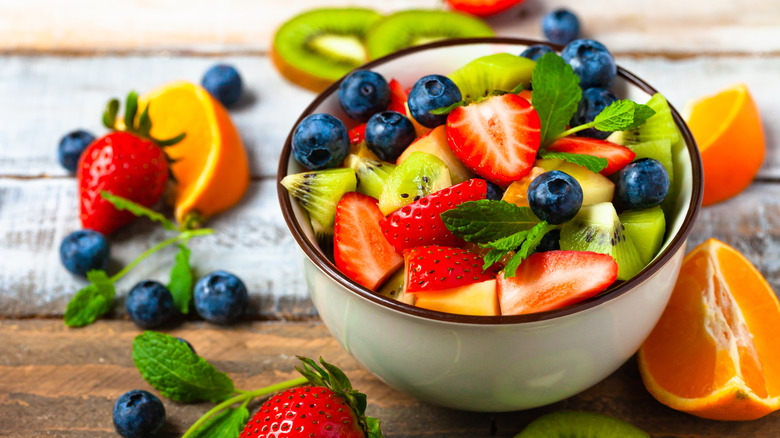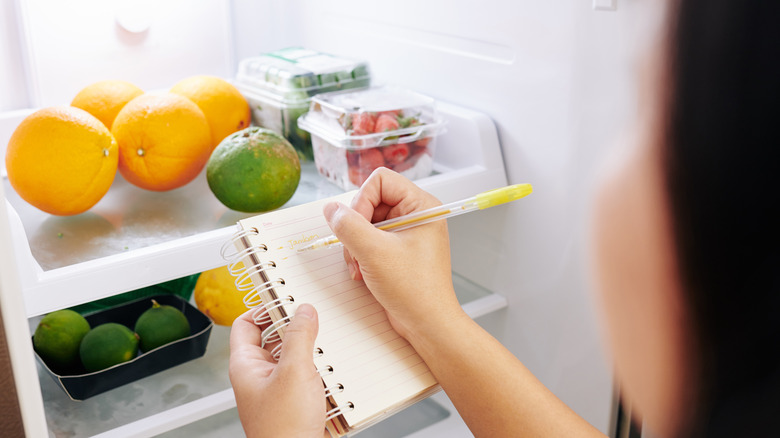How Long Is Fruit Salad Safe To Eat?
Fruit salads are popular dishes found at both summertime and springtime family gatherings (e.g. picnics, graduations, barbeques). With an assortment of fruits -– strawberries, watermelon, pineapple -– loaded with antioxidants, it's no wonder people flock to this food entree. Oftentimes, fruit salad seems to be among the first leftovers to get taken home by guests, but how long is fruit salad safe to eat?
Whether it's store-bought or made at home, Taste of Home explains the best time to enjoy fruit salad is within three days. However, you can squeeze an additional two days of enjoyment in if you store it in an airtight container, then place it in a refrigerator. Altogether, that's a whopping five days!
Even when those brown spots start to appear on your apples and bananas, rest assured you can still safely consume the fruit (via BestFoodFacts). While it may look less appetizing, keep in mind the color doesn't really affect taste (via Well + Good). In actuality, the fruit is undergoing oxidation, the process of being exposed to the air. The oxygen within the air prompts enzymic browning to occur, causing the fruit to turn brown.
How to make a fruit salad last longer
Even though five days is the maximum recommended amount of days to consume fruit salad, certain practices can help give it this longer shelf life. First off, when making fruit salad, choose sturdy fruit with skin. Apples, peaches, blueberries, etc. are all exceptional choices according to Well+Good. Avoid bananas and raspberries as these don't last as long. Next, avoid overly chopping your fruit, as smaller pieces lead to more juice leakage.
Immediately after chopping, you'll want to toss in an acidic juice (via Taste of Home). Examples include orange, lemon, or even pineapple juice. Registered dietitian nutritionist Keri Gans tells Well+Good, "The acidity of lemons helps to prevent the browning of fruits. Specifically, it helps to inactivate the enzyme polyphenol oxidase, which is responsible for the browning." It may also enhance flavor and balance the sweetness of the fruit with a little tartness.
If fruit juice isn't your thing, another fruit-saving trick is to use simple syrups, acidulated water, or Sprite (via Taste of Home). Now that you've saved your fruit from oxidation, store it in an airtight container, then immediately place it in the refrigerator to improve its lifespan, suggests Well+Good.


